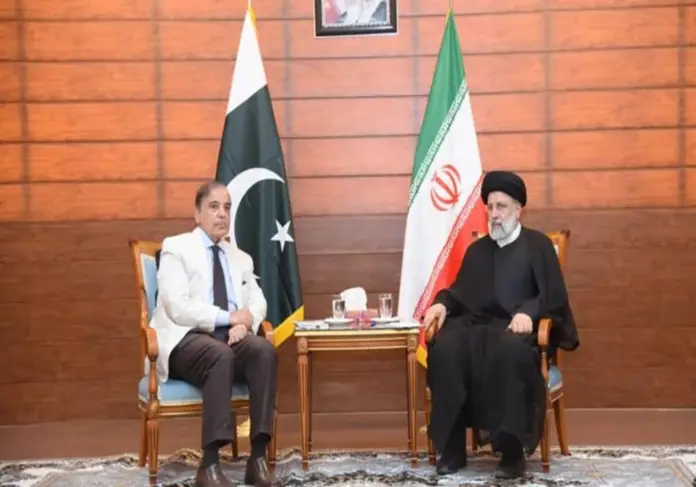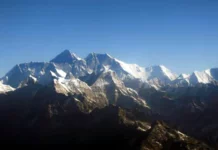Iranian President Ebrahim Raisi arrived in Islamabad on Monday for a three-day visit to Pakistan. This marks Raisi’s first visit to Pakistan since assuming the presidency in 2021, and it holds particular significance as experts closely monitor the trip’s implications for regional politics.
According to Pakistan’s Foreign Office, during this visit from April 22 to April 24, President Raisi will meet not only with Pakistan’s President and Prime Minister but also with the Chairman of the Senate and the Speaker of the National Assembly.
Additionally, President Raisi and his delegation will engage with provincial government representatives in Karachi and Lahore during the visit. This visit comes at a critical time as Iran grapples with the Israel-Palestine conflict’s escalating tensions. Previously, Pakistan and Iran witnessed strained relations during the early months of the current year when both neighboring countries condemned each other’s attacks on their respective territories by apparent terrorists.
In the context of Iran-Israel tensions and Pakistan’s current political and economic situation, this visit holds particular importance. President Raisi’s presence underscores efforts to strengthen diplomatic ties and explore areas of mutual interest between the two nations.
This special visit by President Ebrahim Raisi is notable for his background, as he has faced past restrictions imposed by the United States. Through his involvement in the judiciary and prosecutorial roles, Raisi has emerged as a significant political figure in Iran.
Ebrahim Raisi, born in Mashhad, Iran, in 1960, hails from a scholarly background, with his father being a prominent scholar. Raisi began his educational journey at the age of 15, studying in a seminary in the holy city of Qom. He actively participated in anti-regime protests during the tenure of Iran’s Shah, who was ousted after the Islamic Revolution led by Ayatollah Ruhollah Khomeini in 1979.
After the revolution, Raisi entered the judiciary, serving in various capacities and eventually becoming the Deputy Prosecutor General in Tehran at the age of 25. He played a role in the notorious ‘Death Committee’ that oversaw mass executions of political prisoners, primarily members of the Mujahideen-e-Khalq (MEK) opposition group, which is also known as the People’s Mujahedin of Iran (PMOI).
While Raisi denies involvement in mass executions, he justifies the death sentences as lawful under Ayatollah Khomeini’s religious decree. Despite facing significant controversies related to his past, Raisi’s rise within Iran’s power structures has been notable.
In 2014, Raisi was appointed as Iran’s Prosecutor General before assuming leadership roles in the State Inspectorate Organization and eventually becoming Deputy Chief Justice, serving as a key figure in Iran’s judicial system. Two years later, he was nominated as the custodian of Astan Quds Razavi, one of Iran’s most influential religious organizations based in Mashhad.
Raisi’s surprise candidacy in the 2017 presidential elections garnered attention, challenging incumbent President Hassan Rouhani, with whom he had worked closely as a scholar. Although Rouhani secured a decisive victory with 57% of the vote in the first round of elections, Raisi’s emergence as a presidential candidate reflected his growing political stature within Iran.
The visit of President Ebrahim Raisi to Pakistan is expected to foster dialogue on various regional and bilateral issues, providing insights into Iran’s evolving foreign policy under his leadership and its impact on regional dynamics.







